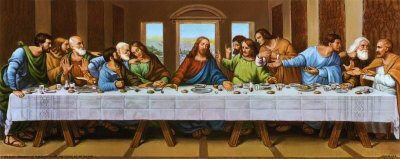Lets begin getting some of this issue and facts of Catholic church the church I believe in. "Speaking of full membership in the Church, Pius XII, in his Encyclical on the Mystical Body, said it is the society of those who have been baptized, and who profess the faith of Christ, and who are governed by their bishops under the visible head, the Pope, the Bishop of Rome."
The Church came into being when Christ died on the Cross, but it was formally inaugurated on Pentecost, when He sent the Holy Spirit as He had promised. St. Paul speaks of all Christians as members of Christ, so that with Him, they form one Mystical Body (Cf. 1 Cor 12:12-31; Col 1:18; 2:18-20; Eph. 1:22-23; 3:19; 4:13). St. Paul did not use the word Mystical. It was developed more recently to bring out the fact that this union is unique, there is no parallel to it. It is not the same as the union of a physical body, nor that of a business corporation.
The Church, the Mystical Body, exists on this earth, and is called the Church militant [us], because its members struggle against the world, the flesh and the devil.
*The following words of Pope Paul VI can serve as a short synthesis of the will of Christ for the constitution and makeup of his Church:
['Christ promised and sent two elements to constitute his work, to extend in time and over all the world the kingdom founded by Him and to make of redeemed mankind his Church, his mystical body, in expectation of His second and triumphal return at the end of the world. These elements are the apostolic college and the Spirit. The apostolic college works externally and objectively. It forms, one might say, the material body of the Church and gives her a visible and social structure. The Spirit works internally, within each person and within the community as a whole animating, vivifying and sanctifying. These two agents, namely the apostolic college whose successor is the sacred hierarchy, and the spirit of Christ, which makes the Church Christ's ordinary instrument in the ministry of the word and the sacraments, work together. On Pentecost morning they are seen in a marvelous harmony at the beginning of Christ's great work.'[6]
For the remainder of this article we will be concerned with the first of these two elements. ] c.ewtn
By the Magisterium , we mean the teaching office of the Church. It consists of the Pope and Bishops. Christ promised to protect the teaching of the Church : "He who hears you, hears me; he who rejects your rejects me, he who rejects me, rejects Him who sent me" (Luke 10. 16).
The Creed which we recite on Sundays and holy days speaks of one, holy, Catholic and apostolic Church. As everybody knows, however, the Church referred to in this Creed is more commonly called just the Catholic Church. It is not, by the way, properly called the Roman Catholic Church, but simply the Catholic Church.
So the proper name for the universal Church is not the Roman Catholic Church. but we say this in the Philippines " Roman Catholic church" Far from it. That term caught on mostly in English-speaking countries; it was promoted mostly by Anglicans, supporters of the "branch theory" of the Church, namely, that the one, holy, catholic and apostolic Church of the creed was supposed to consist of three major branches, the Anglican, the Orthodox and the so-called Roman Catholic. It was to avoid that kind of interpretation that the English-speaking bishops at Vatican I succeeded in warning the Church away from ever using the term officially herself: It too easily could be misunderstood.
From the fact that the Church is God's means of giving grace, is it is clear that there is no salvation outside the Catholic Church. This is mean fact if you are outside Catholic, but even in our basic understanding about the true church one can only go back to the unchanging community originally instituted by Christ himself. And who had the succession from the first Pope, from Peter down to the present Pope unbroken line of successors. The question is who built your church?
skip to main |
skip to sidebar

The Institution of the Holy Eucharist
My blog is a collection of real messages of Jesus, Mother Mary, Archangel Michael from different parts of the world. Pray for decerment of all these messages.
Facebook Badge
Anna's Blog Archive
-
▼
2007
(10)
-
▼
December
(10)
- The Latest Message of Mother Mary to the World
- St. Michael Archangel's message to us.
- The messages of Jesus in our time.
- The Second Coming of Jesus
- THE Divine Mercy
- The Holy Rosary & History from St. Dominic
- COMMUNION WITH THE SAINTS
- Blessed Mother Mary and practice devotion to her
- Catholic Church The True Church
- Religion and Beliefs
-
▼
December
(10)
About Me
WORK HARDER TO BE HOLY EVERYDAY
As no such thing as no need to think about being Holy, as we are already save through Jesus "true" in some sense but the sins being committed every now and then are not being paid yet nor forgiven, so this is where we work harder and attain Holiness as our God is Holy. Jesus reminds us that even the smallest sin shall be paid in full, and no one can come to paradise without paying them up to the last penny.
Prayer is the greatest way to attain Holiness plus works.
Prayer is the greatest way to attain Holiness plus works.
The Last Supper

The Institution of the Holy Eucharist

